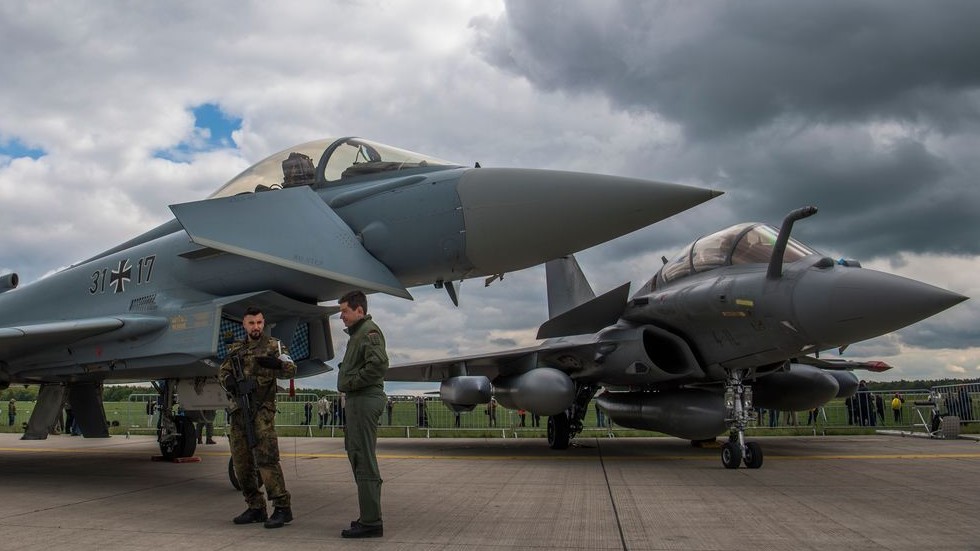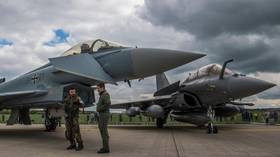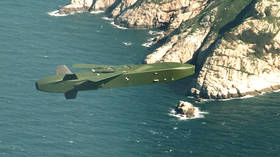
A discussion between senior German military officers was intercepted, the nation’s defense ministry has confirmed

FILE PHOTO: The Rafal fighter of the German Air Force. © AFP / JOHN MACDOUGALL
The discussions between German officers, including a top Air Force commander, about aiding Kiev in a potential attack on the Crimean Bridge are genuine, a German Defense Ministry spokeswoman told the national public broadcaster, ARD, on Saturday.
The leak was published on Friday by RT Editor-in-Chief Margarita Simonyan, who said she’d received it from Russian security officials. The journalist initially released a Russian-language transcript of the conversation and then posted the source audio file in German on social media.
The 38-minute audio dated February 19 contained a conversation between four officers of the German air force (Luftwaffe), including its commander, Lieutenant General Ingo Gerhartz. The military were discussing the operational and targeting details of Taurus long-range missiles that Germany was considering sending to Kiev.
The officers were discussing the matter as if the delivery had already been agreed upon, and also spoke about maintaining plausible deniability in the event of the bridge attack that would allow Berlin to avoid being dragged into the conflict between Kiev and Moscow.

Read more
“According to our assessment, a conversation in the Air Force was intercepted,” the ministry’s spokeswoman told ARD, adding that the German officials were unable to determine whether any changes were made to the transcript or the recording itself.
Earlier, the German media also reported that the audio clip appeared to be authentic. Germany’s DPA news agency said that the officers were talking using the Webex online calling, messaging and conference platform. Der Spiegel reported that “according to an initial assessment, AI-supported counterfeiting is largely ruled out.”
Chancellor Olaf Scholz called the leak a “very serious matter” earlier on Saturday. “That is why it is now being investigated very intensively, very carefully and very swiftly,” he told journalists in Rome following an audience with the Pope, adding that such a probe was “necessary.”
He did not comment on the contents of the recording and did not elaborate on whether Berlin was aware of the plans discussed by the senior military officers.

Read more
Some German politicians assumed that the incident might have further implications. A German MP, Roderich Kiesewetter of the Christian Democratic Union party, himself a retired colonel and the head of the German reservists’ association, told the German media that other sensitive military conversations could have been intercepted and might be published by Russia in the future.
“It is in no way surprising that such a conversation was intercepted,” he told Germany’s n-tv news media outlet, adding that it was “equally unsurprising that the recording became public.” “We have to assume that the Russians have more material of this kind,” the retired colonel said.
The incident drew strong criticism from other German politicians. “There must finally be an end to our naivety,” the head of the Bundestag’s Defense Committee, Marie-Agnes Strack-Zimmermann, told n-tv. She also called for enhanced “counter-espionage” efforts while admitting that Germany was “obviously vulnerable in this area.”
The chairman of the Parliamentary Control Committee, Konstantin von Notz, demanded an “immediate clarification of all background information” in a conversation with the German media company RND.




